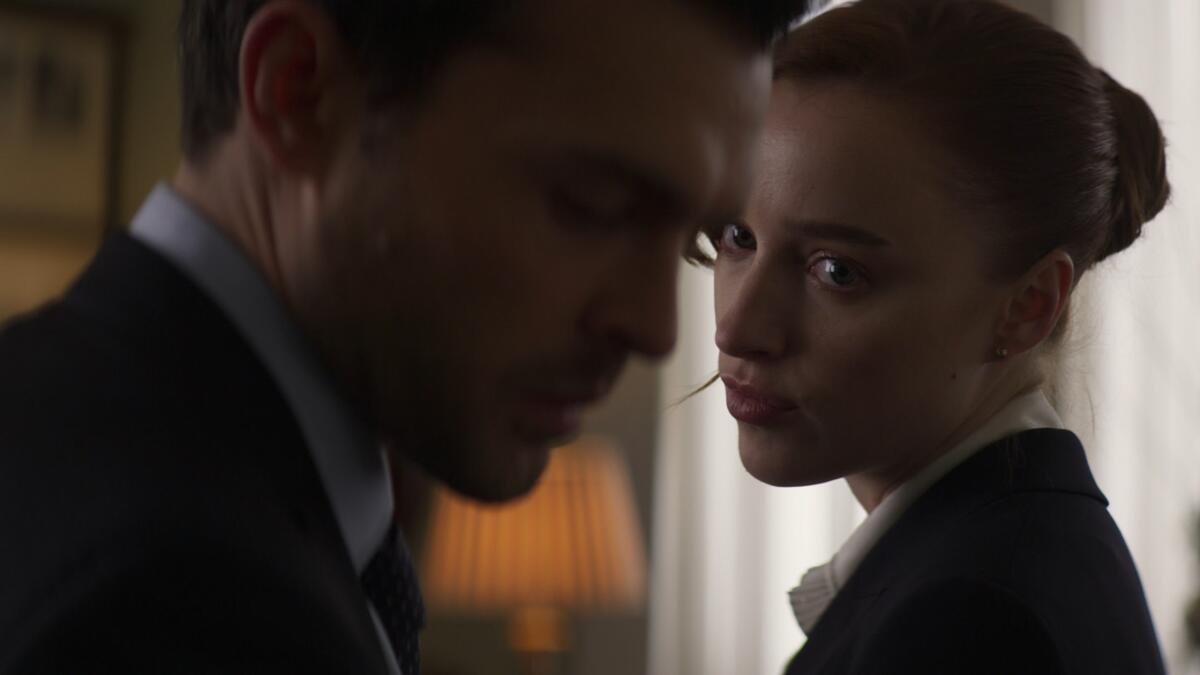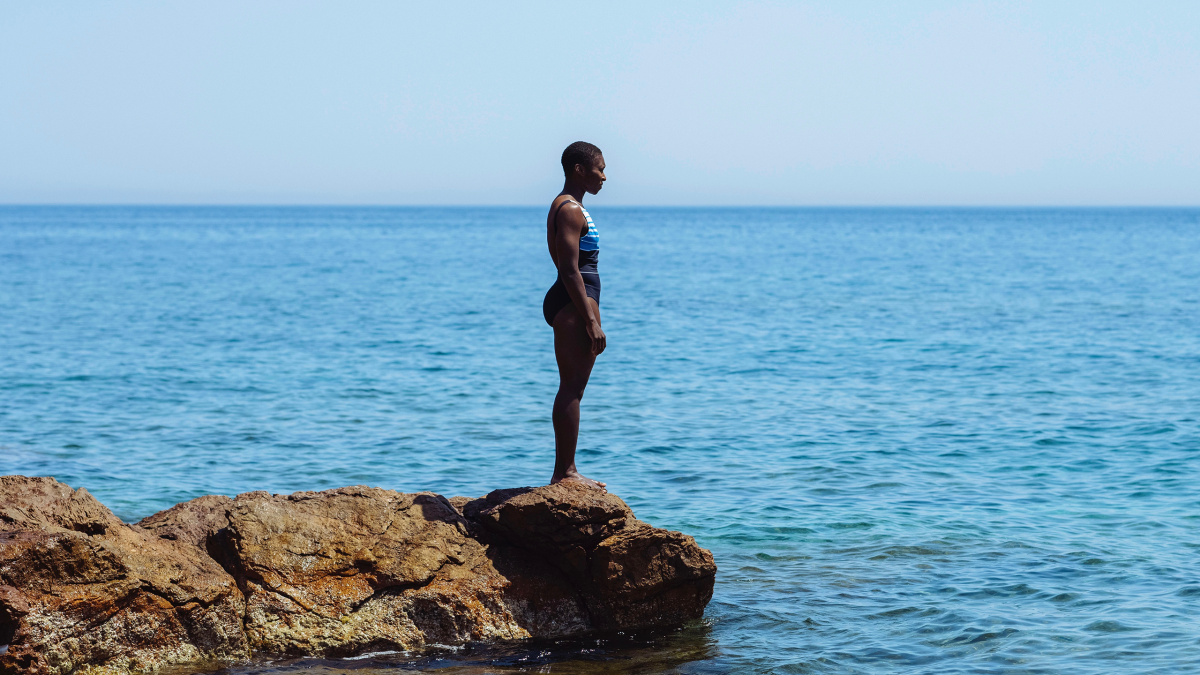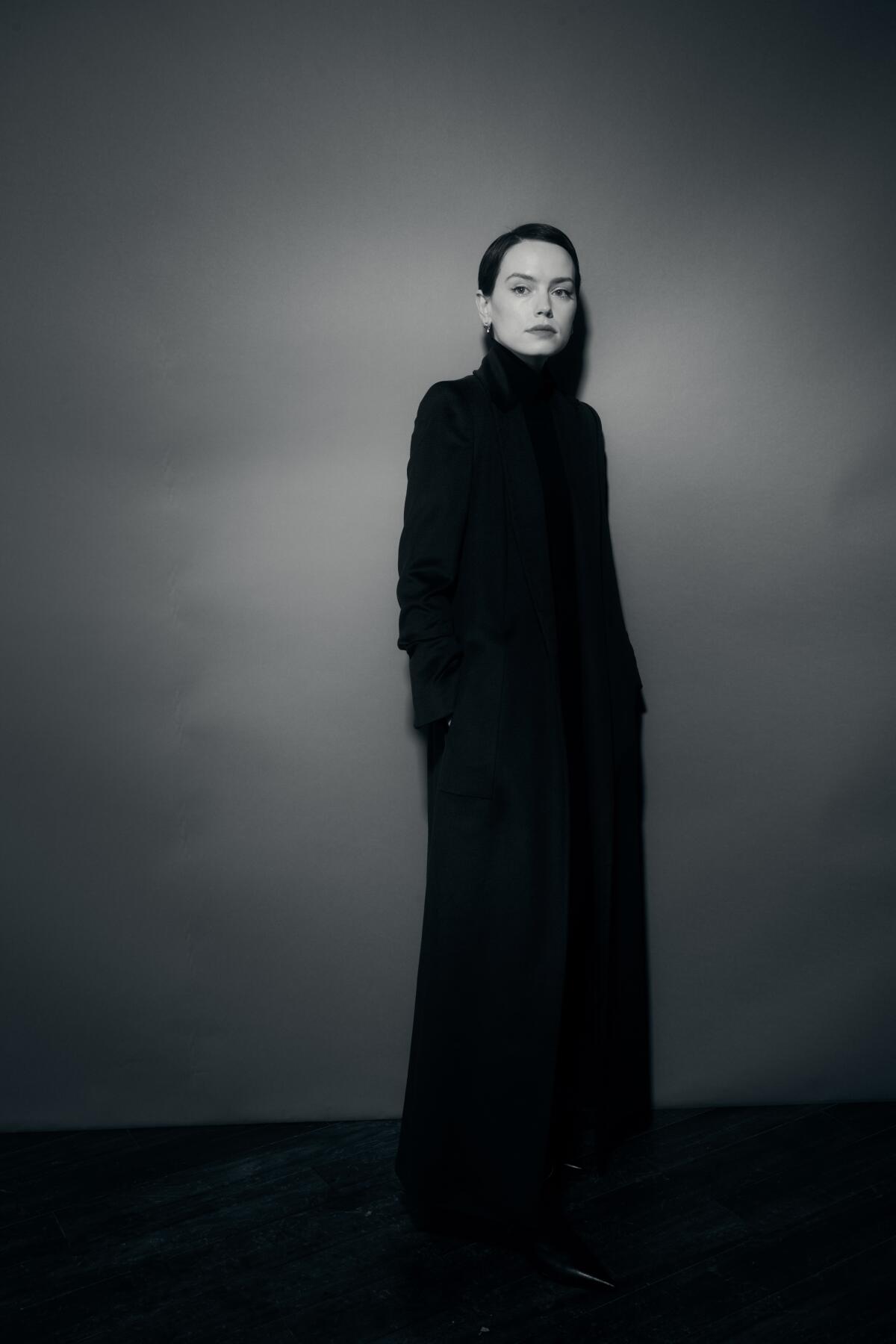A surprise Brett Kavanaugh documentary came to Sundance. What happens next?

Welcome to a special Sundance Daily edition of the Wide Shot, a newsletter about the business of entertainment. Sign up here to get it in your inbox.
Today’s forecast
What to expect at the fest for Saturday, Jan. 21
Doug Liman’s surprise Sundance documentary “Justice,” which digs into the sexual misconduct allegations against Supreme Court Justice Brett M. Kavanaugh, is almost certain to make waves in the coming days in Hollywood, Washington and beyond.
The film, which has already sparked a fresh slew of tips about Kavanaugh, as Liman and producer Amy Herdy told a capacity crowd at the Park Avenue Theatre after Friday’s premiere, might also spark a bidding war: Finished on the eve of the festival and added to the lineup at Thursday’s opening press conference, “Justice” — which is still without distribution — has swiftly established itself as the most talked-about title of the festival so far. (Liz Garbus, who is executive producing along with Story Syndicate colleague Dan Cogan, is no stranger to the buzzy Sundance documentary about a prominent figure; her biographical portrait “What Happened, Miss Simone?” opened the festival in 2015 and went on to an Oscar nomination.)
It’s unclear, though, if “Justice” will do much more than generate conversation. It features experts offering support for the credibility of the existing allegations against Kavanaugh (who has denied the allegations), and underscores reporting by The Times’ Jackie Calmes and others that the White House and Senate Republicans constrained the FBI investigation into the allegations after Kavanaugh’s nomination in 2018. But spurring, as Herdy put it Friday, “a real investigation with subpoena powers,” is another matter entirely. Saturday, and the Sunday political talk shows, may tell just how far the ripple effect goes. —Matt Brennan
READ MORE: ‘People are terrified’: Inside the premiere of Sundance’s surprise Brett Kavanaugh doc
The queue
The movies worth standing in line for

With the verve of a debut director and the assurance of an old hand, Chloe Domont’s first feature, “Fair Play,” turns the Wall Street drama on its head, swapping stock trades and bond issues for brushed-off caresses and withering slights. When Emily (Phoebe Dynevor) receives the promotion her fiancé/fellow analyst, Luke (Alden Ehrenreich), had expected, their relationship becomes a minefield of mutual insecurities, with the leering boys club of high finance as the backdrop. Soon enough, the film emerges as a taut and spectacularly nasty erotic thriller about the persistence of gender roles and their cruel enforcement, enlivened at every turn by the leads’ oil-and-vinegar chemistry and Domont’s preternatural eye for where the seedy — a trash-strewn alley, for instance, or a downtown dive — meets the sleek. Watching their relationship unravel held me as rapt as the collapse of the markets: Think of it as a scintillating “Margin Call” of the heart. (Eccles Theatre, 9 a.m. MT Sunday) —Matt Brennan
This former classical piano student was neither talented nor dedicated enough to come within spitting distance of the International Chopin Piano Competition, a prestigious once-every-five-years event that attracts etude enthusiasts and nocturne naturals from all over the world. Still, for anyone who’s ever attempted to master a musical instrument, Jakub Piątek’s tense and touching documentary “Pianoforte” — which follows a handful of prodigiously gifted young contenders as they advance (or not) in the 2021 competition — will surely bring some of your sweaty-palmed memories flooding back. (Sundance Mountain Resort, 2:55 P.M. MT) —Justin Chang
Working lunch
Catch up with movers and shakers from around the fest

Producers Émilie Georges and Naima Abed’s indie shingle Paradise City got its start by working primarily on genre movies such as the 2013 version of “We Are What We Are,” a remake of the Mexican cannibal horror film of the same name. But it was their involvement with Luca Guadagnino’s “Call Me by Your Name,” which earned Georges a best picture nomination, that took the production and management company to a new level.
The duo relaunched the Paris- and London-based Paradise City last year with a more expansive remit and film slate, with a knack for movies that defy international borders and the limitations of genres. Their Sundance feature, “Drift,” stars Cynthia Erivo as the daughter of a government loyalist who flees worn-torn Liberia, only to struggle for survival on a Greek island by any means available. Haunted by her memories, she befriends an American tour guide, played by Alia Shawkat.
The movie, adapted by Susanne Farrell and Alexander Maksik from Maksik’s 2013 novel, “A Marker to Measure Drift,” is the English-language debut of Singaporean director Anthony Chen, whose previous work includes 2013’s “Ilo Ilo,” which premiered at that year’s Cannes Film Festival.
The Wide Shot’s Ryan Faughnder spoke with Georges and Abed about the breaking down of walls to get interesting films made. “Drift” premieres Sunday at 12:30 p.m. MT at Eccles Theatre.
Tell me a little about how you got involved in “Drift.”
Abed: It’s a combination of a long relationship and an exciting project that came together. Émilie has known the director since, like, 2010. He’s from Singapore initially, then he was living in London with his family. His films were successful on the art house circuit. We were approached by Peter Spears, who was one of our fellow producers on “Call Me by Your Name,” and he brought us this script. We started talking to Anthony about this, and he responded to it. Then we took a turn on developing this more and he decided how to make this his own thing.
Was it difficult to get made?
Abed: Quite practically, it was very challenging to finance a film like this, because it is quite a minimalist approach. It’s not like a typical Hollywood film and it does tackle difficult subject matter from the outset.
Georges: It’s very execution-dependent. This is difficult to sell, or to give a value to, on paper. And that’s part of the excitement, by the way. We are very excited to see where the market is.
It’s interesting that your company, Paradise City, essentially started by focusing on genre movies and has now expanded, at a time when genre movies are so hot in Hollywood. Essentially, the business seems to be going in the opposite direction.
Abed: And we were very successful with [genre], too. It was funny because it was a little groundbreaking, right? And it was mostly led by our taste. There were many international filmmakers who were breaking out, whether it was Luca Guadagnino or Asghar Farhadi, and there’s been an expansion in foreign language or foreign language-adjacent content. I feel like we were never observing those as trends, but were always led by the stuff that we wanted to do.
Guadagnino is a perfect example of what’s happening, because he went from making a drama like “Call Me by Your Name” to creating horror-type movies like “Suspiria” (2018) and last year’s “Bones and All.”
Abed: He’s very unique. But I think, in all sorts of ways, this foreign language barrier, the art house/mainstream barrier, the prestige barrier — all those barriers are dropping. For people like us, who have sat with talent without forbidding anything, it’s been quite beneficial. We’ve been working with filmmakers from all over the world for a very long time in all sorts of languages and all sorts of genres.
Georges: Over the years, we’ve become very specialized in bridging cultures and filmmakers to new horizons. That can be seen in “Call Me by Your Name” — an Italian director, multilingual with actors. And now it can be seen in “Drift.”
Abed: [“Drift” has] a Singaporean director living in London, a British Nigerian star (Erivo), an Iraqi American actress (Shawkat) and producers from all over the U.S. and from Europe.
Georges: And there was financing that we were able to raise from all over the world.
The indie film business has always been international. But what you’re describing is an increasing level of cross-border collaboration between artists, producers and financiers. And that kind of thing seems to appeal to audiences, because they want to see cultures that are different from theirs.
Abed: You can see that interest and that curiosity. And from the creative standpoint, you have the curiosity to explore new horizons and work with different people. It’s much easier now to say, “Oh, you know what? I really want to work with that person, and I’m just going to message them.” For artists at large, there’s a desire to collaborate, but what’s the framework for that? And how do you convince people that this is feasible? That’s where a producer sits.
Happy hour
The panels, talks, parties and more where you’ll find us in Park City today

In an attempt to distract myself from Slack and Twitter for an hour, I tried, and failed, to wrangle an invitation to UTA House (UTA Private Estate, location undisclosed) for their Barry’s Lift Class — nothing like a little shoe-leather reporting! If you have more pull than I and want to work up a sweat, there are still Sunday morning offerings at 8 and 8:50 a.m. But since my daily Sundance workout of huffing it up the hill to our condo in the thin mountain air will have to suffice, I’m turning my focus to the profusion of Saturday afternoon panels.
As an overworked editor, I couldn’t help but have my eye drawn to Sundance Institute’s own “The Big Conversation: Going Nowhere? On Burnout & Attention Crisis,” (Filmmaker Lodge, 550 Main St., 2 p.m. MT), which features the unexpected trio of food media maven Ruth Reichl, “Magazine Dreams” star Jonathan Majors and New Yorker cartoonist Adrian Tomine discussing “the constantly growing expectations of creators in a hyper-productive and connected culture.”
Not helping my own attention crisis is the fact that Nikole Hannah-Jones and Roger Ross Williams, the team behind “The 1619 Project” — one of my most anticipated TV series of the year — will be on stage across town at the same time as part of Onyx Collective’s Storytellers Showcase (The Box at the Ray, 1768 Park Ave., 2 p.m. MT). Or that the invitation-only Women at Sundance Celebration (The Park, 950 Iron Horse Drive, 2 p.m. MT), featuring conversations with Maryam Keshavarz, Noora Niasari and Sierra Urich about art and the uprising of Iranian woman and Dakota Johnson and Lulu Wang about their experiences as women in the film industry, is in the same time slot as well.
I’ve been joking that I need a Hermione Granger-style Time-Turner to accomplish everything I want to at Sundance, but I didn’t mean it so literally! —Matt Brennan
Photo booth

Daisy Ridley, the star and producer of Rachel Lambert’s off-kilter romantic comedy “Sometimes I Think About Dying,” was just one of the familiar faces to drop in on the Times studio Friday. Be sure to check out our full gallery of portraits from the fest, and join us as we ask Jonathan Majors and the cast of “Aliens Abducted My Parents and Now I Feel Kinda Left Out” some Very Important Questions.
The Wide Shot is going to Sundance!
We’re sending daily dispatches from Park City throughout the festival’s first weekend. Sign up here for all things Sundance, plus a regular diet of news, analysis and insights on the business of Hollywood, from streaming wars to production.
You may occasionally receive promotional content from the Los Angeles Times.




